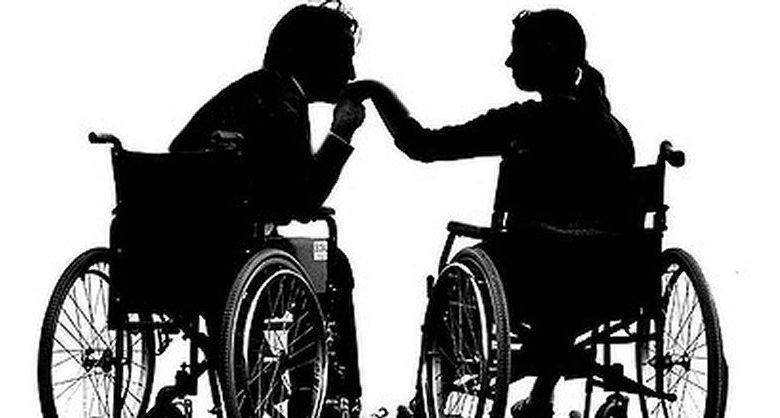
Sexual expression and The Rose Centre
Last month, Kirsty Liddard wrote the article Reclaiming our sexual stories for Disability Horizons. Now she talks to us about The Rose Centre for Young People with Disabilities which aims to support young adults with disabilities in expressing themselves sexually.
In my last article, I shared with you the importance of disabled people telling their own sexual stories, on their own terms. This is, I suggested, crucial if we are to carve out more positive sexual cultures than the one currently extended to us, which stereotypes our sexual lives and bodies.
Today I would like to tell you about a fantastic space where disabled peoples’ sexual stories are really flowing: The Rose Centre for Young People with Disabilities. A Toronto-based organisation, our primary goal is to support young adults with disabilities in the areas of sexual expression, dating, and building healthy relationships.
Our secondary goal is to raise awareness within the general population on issues surrounding disability and social relationships. To realise these goals we provide a safe space, hold inclusive events, and engage in other activities that empower young adults with disabilities to maximize their potential.
Our co-founders, Tim Rose and Natalie Sanborn, set up the organisation in their spare time because of the way in which matters of sexual and intimate life are often overlooked by the majority of organisations which support young people with disabilities.
We are a young organisation in more ways than one, having only received charitable status in 2011. Our six board members (of which I am one) are all under 30, and four of us are young people with disabilities. Because of this, we can offer real understanding and support on a range of issues including sexuality, sexual health, parenthood, friendships, and social inclusion. We are also fully inclusive of young people with a wide range of disabilities.
A couple of months ago we held our first discussion event: “Dating with a Disability”. A large group of young people came along just to be able to chat to others about their dating experiences, funny stories, and difficulties. It was an open, inclusive and exhilarating space. Discussion began with many of us listing the difficulties of dating with a disability, for example, poor access to potential date venues, inaccessible public transport, the complex issue of personal assistance on a date, and when and how to disclose disability if online dating.
It is important to share the difficulties we may face. However, by the end of the event – just two hours later – the only topic of discussion was what disability brings to an intimate relationship, and the positive impact of having a partner with disability – of which we collectively decided there were many!
We are currently doing all of this on just $1000 (£625) of (one time) funding. However, we’re currently executing a thirty-day fundraising campaign, the Grow the Rose Campaign, through which we hope to secure $5000. We know that this is a crucial time in our history as an organisation and the money raised within the campaign will fund our activities for the next twelve months, ensuring that we can continue our important work.
If you’d like to make a donation (no amount is too small!) and help ‘grow the rose’, please see our website! We’ve even made a beautiful video to accompany our campaign. Take a look:
Our campaign will end with a big party where we will also be celebrating the launch of our new fully accessible website, which was donated to us in kind. If you live in, or around, Toronto and would like to come along, you’re more than welcome! Just get in touch on the details below.
There you have it, the telling of sexual stories in practice; a reclamation of our sexual and intimate selves. Currently, The Rose Centre for Young Adults with Disabilities is a unique space where this happens, but we don’t want it to be unique! We really hope that similar organisations with a similar ethos are founded in other places.
While sex and disability can evoke a range of (often, problematic and oppressive) reactions, the worst by far is silence. Yet, as the work of The Rose Centre for Young Adults with Disabilities shows, this is a reaction we have the power to change. It’s simple: let’s start talking.
Connect with us on Facebook and Tweet us @therosecentre! Alternatively, you can get in touch with us via email.
By Kirsty Liddard
Check out…
• Our Relationships section.
• Ask the reader: relationship special.
• Outsiders: talking about sex and disability.
Help us break the taboo by emailing us at editor@disabilityhorizons.com, messaging us on Facebook, tweeting us @DHorizons and leaving your comments below.